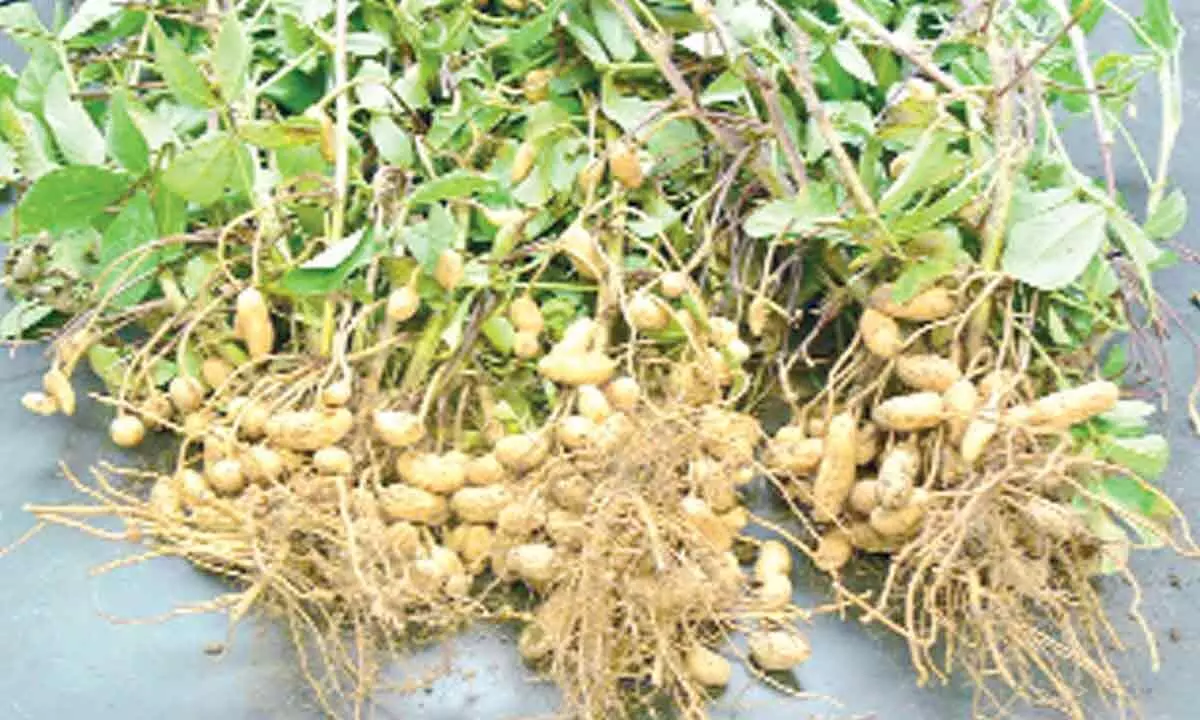Poor quality groundnut seeds put farmers in a fix

KL 1812 variety quality seed
: Groundnut farmers in the district are facing a tough time due to poor germination of seeds coupled with deficit rainfall and lack of proper monitoring in the kharif season.
Anantapur: Groundnut farmers in the district are facing a tough time due to poor germination of seeds coupled with deficit rainfall and lack of proper monitoring in the kharif season. The system of seed production and distribution has several implications on seed quality. Even though seed agencies enter into agreement with farmers regarding procurement of seeds produced by them, the contracts often do not bind the farmers and seeds produced get diverted into the open market.
Every year AP Seeds Corporation is procuring only one type K6 from the farmers. There are nearly tens of varieties in the market. KL1812 will give good yield than K6. New varieties like tag 24, GJ, 350 TCGS 1694 are popular in groundnut.
Groundnut, a self-pollinated legume is an important crop say Agriculture JD Naik, which is cultivated in 3.5 lakh hectares in Anantapur district for extraction of edible oil and food uses. The kernels are rich in oil (48–50 percent) and protein (25–28 percent) and are source of several vitamins, minerals, antioxidants, biologically active polyphenols, flavonoids and isoflavones. Improved varieties of groundnut with high yield potential were developed and released for cultivation. The improved varieties belong to different maturity durations and possess resistance to diseases, tolerance to drought, enhanced oil content and improved quality traits for food uses. Conventional breeding procedures along with the tools for phenotyping were largely used in groundnut improvement programmes. Mutations are used to induce variability and wide hybridisation was attempted to tap variability from wild species. Low genetic variability has been a bottleneck for groundnut improvement. The vast potential of wild species, reservoir of new alleles remains under-utilised. Development of linkage maps of groundnut during the last decade was followed by identification of markers and quantitative trait loci for the target traits. There are four recognised classes of seeds including breeder seed, foundation seed, registered seed and certified seed. The basis of seed multiplication of all notified varieties/hybrids is the nucleus seed.








